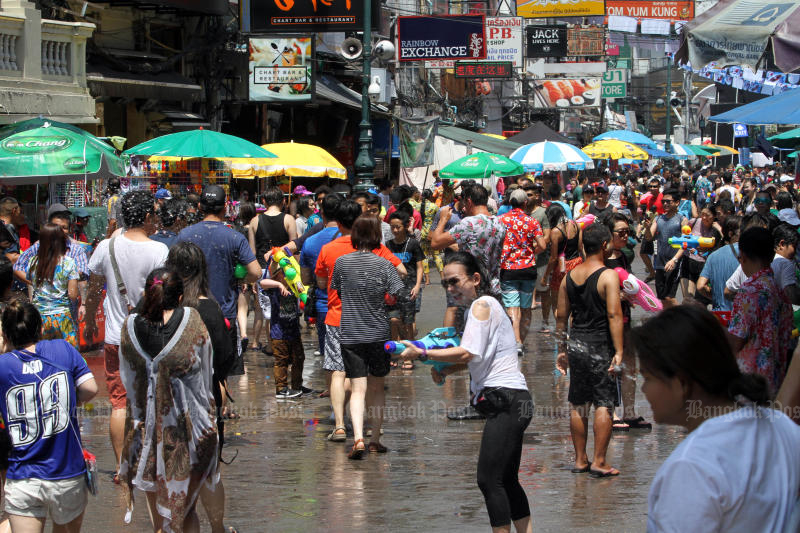
Business operators along Khao San Road have objected to a policy by the Centre for Covid-19 Situation Administration (CCSA) that allows Songkran activities to be held but prohibits water fights, saying they will lose income.
The move began after the CCSA met yesterday under the chairmanship of Prime Minister Prayut Chan-o-cha and agreed that the annual celebrations could proceed provided there was no alcohol at organised events. People will also be encouraged to engage in traditional activities without water splashing.
"If the government wants to ease measures to allow Songkran festivities to be held, it must not prohibit water splashing," Sanga Ruangwattanakul, president of the Khao San Business Association, told a media outlet yesterday.
If you remove that trademark element, "tourists would have no idea why they should visit", he said.
Mr Sanga said business operators in Khao San Road would therefore not likely plan any special events for Songkran this year. The association will submit a proposal asking the CCSA and Gen Prayut to review the decision, he added.
Business operators can endure strict measures to control the virus such as restricting the number of daily visitors to 5,000, he said.
Businesses have been looking forward to Songkran in the hope it would boost tourism after the Omicron variant discouraged people from travelling, Mr Sanga said. The hotel reservation rate has risen to just 20% despite the country having reopened, he noted.
Furthermore, many night entertainment venues -- especially pubs and bars -- have changed to operate as restaurants in order to comply with the government's measures, which has boosted their sales volume.
"If the Songkran festival is banned, we could lose many tourists to other Asean countries, especially during the peak season of April and May," Mr Sanga said.
According to the CCSA meeting, activities such as sprinkling scented water on Buddha statues, pouring water on the hands of elderly people to seek their blessing, and other activities at temples could proceed. However, all organised events must take place in a Covid-free setting.
Local and community celebrations should also comply with Covid-19 control measures, and should not extend to public areas such as roads. People who want to hold activities in public areas must get permission from the appropriate agencies first.
Songkran runs from April 13-15.